A settlement agreement, also known as a compromise agreement, is a legally binding contract between an employer and employee that outlines the terms of their separation, typically including the payment of a sum of money in exchange for the employee’s agreement to release the employer from any potential legal claims.
This type of agreement is commonly used in situations such as job termination, resignation, and disputes over issues such as discrimination or harassment. In this article, we will discuss the key elements of a settlement agreement, including the negotiation process, the terms that should be included, and the legal implications of signing such an agreement.
Table of Contents
Settlement Agreement Templates
Resolve disputes and reach mutually beneficial resolutions with our comprehensive collection of Settlement Agreement Templates. These customizable and printable templates provide a formal and legally recognized framework for parties to settle their differences and avoid litigation.
Whether you’re dealing with a business dispute, personal injury claim, or contractual disagreement, our templates offer sections to outline the terms and conditions of the settlement, including financial arrangements, confidentiality clauses, release of claims, and any other relevant provisions.
By utilizing our Settlement Agreement Templates, you can establish clear agreements, protect your interests, and achieve a peaceful resolution. Simplify the settlement process, save time and costs associated with litigation, and foster positive relationships with our user-friendly templates. Download now and pave the way for a fair and amicable settlement.
Understanding the Pros and Cons of a Settlement Agreement

A settlement agreement, also known as a severance agreement or release of claims, is a legally binding contract between an employee and an employer that typically resolves disputes or releases potential legal claims in exchange for some form of compensation or benefit. Some pros of a settlement agreement include:
- It can provide a quick and relatively inexpensive resolution to disputes or claims, avoiding the time and costs associated with litigation.
- It can protect the employer from the potential liability and negative publicity associated with a lawsuit.
- It can provide employees with a financial payout or other benefits in exchange for releasing claims.
Some cons of a settlement agreement include:
- It may require an employee to give up certain rights, such as the right to sue the employer or speak publicly about the dispute.
- It may require an employee to waive certain claims, such as discrimination or retaliation, without fully understanding the implications of doing so.
- The financial compensation offered may be less than what an employee could potentially recover through litigation.
It’s important for employees to carefully review and understand the terms of a settlement agreement before signing it. They may also want to consult with an attorney to ensure their rights are protected.
When to use a settlement agreement?
A settlement agreement is typically used in situations where an employer and employee have a dispute or potential legal claim that they wish to resolve without going to court. Some common situations where a settlement agreement may be used include:
Termination of employment: An employer may offer a settlement agreement to an employee who is being terminated, in exchange for the employee releasing any potential claims against the company.
Harassment or discrimination: An employer may offer a settlement agreement to an employee who has made a claim of harassment or discrimination, in order to resolve the matter without the need for a lawsuit.
Severance pay: An employer may offer a settlement agreement to an employee who is being laid off or whose position is being eliminated, in exchange for the employee releasing any claims against the company and waiving the right to sue in exchange for severance pay.
Non-compete, non-solicitation, or confidentiality agreements: An employer may ask an employee to sign a settlement agreement that includes non-compete, non-solicitation, or confidentiality agreements when the employee leaves the company.
Negotiating the Terms of a Settlement Agreement
Deciding the terms of a settlement agreement is a negotiation process between the employer and employee. Both parties should have a clear understanding of their rights and the potential risks and benefits of the agreement before deciding on the terms. Some key terms that may be included in a settlement agreement are:
Release of claims: The employee must agree to release any potential legal claims against the employer in exchange for the compensation or benefits provided under the agreement.
Compensation or benefits: The agreement should specify the amount of financial compensation or benefits the employee will receive in exchange for releasing claims, such as severance pay or continuation of health insurance coverage.
Non-disclosure and non-disparagement clauses: These clauses prohibit the employee from disclosing confidential information or making negative statements about the employer, either during or after the employment.
Non-compete and non-solicitation clauses: These clauses prohibit the employee from competing against the employer or soliciting its customers or employees after the employment.
Return of company property: The employee must agree to return any company property, such as equipment or documents, before receiving the compensation or benefits provided under the agreement.
Compliance with other agreements: The employee must agree to comply with any other agreements, such as non-disclosure, non-compete, or non-solicitation agreements, that they may have signed while employed by the company.
Making a settlement agreement with your employer
A settlement agreement is a legally binding document that sets out the terms of a settlement reached between an employer and an employee. This can include terms such as the amount of any financial compensation, the terms of any reference or confidentiality provisions, and any other terms that the parties agree to.
The process of making a settlement agreement with your employer can be a complex one, and it is important to understand your rights and responsibilities before entering into such an agreement.
Understand the Reasons for the Settlement Agreement
The first step in making a settlement agreement with your employer is to understand the reasons for the agreement. This could be because of a dispute between the employee and the employer, or it could be because the employee is leaving the company and wants to ensure a smooth transition.
Seek Legal Advice
It is important to seek legal advice before entering into a settlement agreement, as this will ensure that you understand your rights and responsibilities. A legal advisor will be able to explain the terms of the agreement, and will also be able to advise you on any potential risks or benefits.
Negotiate the Terms of the Agreement
Once you have a clear understanding of the reasons for the settlement agreement and have sought legal advice, you can begin to negotiate the terms of the agreement with your employer. This will involve discussing the terms of any financial compensation, the terms of any reference or confidentiality provisions, and any other terms that you feel are important.
Review the Agreement
Once the terms of the settlement agreement have been agreed upon, it is important to review the agreement carefully. This will ensure that you understand the terms of the agreement and that you are happy with the terms.
Sign the Agreement
Once you have reviewed the agreement and are happy with the terms, you will need to sign the agreement. It is important to note that a settlement agreement is a legally binding document, and once it has been signed, you will be bound by the terms of the agreement.
Follow the Agreement
Finally, it is important to follow the terms of the agreement once it has been signed. This will ensure that both parties are able to benefit from the agreement, and that any disputes are resolved in a timely and appropriate manner.
FAQs
What should I do before entering into a settlement agreement?
Before entering into a settlement agreement, it is important to understand the reasons for the agreement, seek legal advice, and negotiate the terms of the agreement with your employer.
What should I look for when reviewing a settlement agreement?
When reviewing a settlement agreement, you should ensure that you understand the terms of the agreement, that the terms are fair and reasonable, and that you are happy with the terms of the agreement.
Is a settlement agreement legally binding?
Yes, a settlement agreement is a legally binding document. Once it is signed, both parties will be bound by the terms of the agreement.
What happens if I don’t follow the terms of a settlement agreement?
If you do not follow the terms of a settlement agreement, you may be in breach of the agreement, which could result in legal action being taken against you.
What should I do if I have a dispute with my employer after a settlement agreement has been signed?
If you have a dispute with your employer after a settlement agreement has been signed, you should try to resolve the dispute in accordance with the terms of the agreement. If this is not possible, you should seek legal advice.
Is it mandatory to have a settlement agreement?
No, it is not mandatory to have a settlement agreement. However, it can be beneficial for both parties to reach a settlement agreement to resolve disputes or ensure a smooth transition when an employee is leaving a company.
Can I change my mind after signing a settlement agreement?
Once a settlement agreement is signed, it is a legally binding document. Changing your mind after signing a settlement agreement is difficult and would require the agreement of both parties. It’s highly recommended to think carefully and have a clear understanding of the terms before signing.
Can my employer force me to sign a settlement agreement?
No, your employer cannot force you to sign a settlement agreement. You have the right to consider the terms and seek legal advice before deciding whether or not to sign the agreement.
Is there a time limit for signing a settlement agreement?
There is no set time limit for signing a settlement agreement. However, it is important to review and sign the agreement in a timely manner to avoid any delays or issues.
Can I get a settlement agreement for any reason?
Not necessarily, settlement agreements are usually used to resolve disputes or for the smooth transition when an employee is leaving the company. If there is no valid reason for a settlement agreement, the employer may not agree to it.






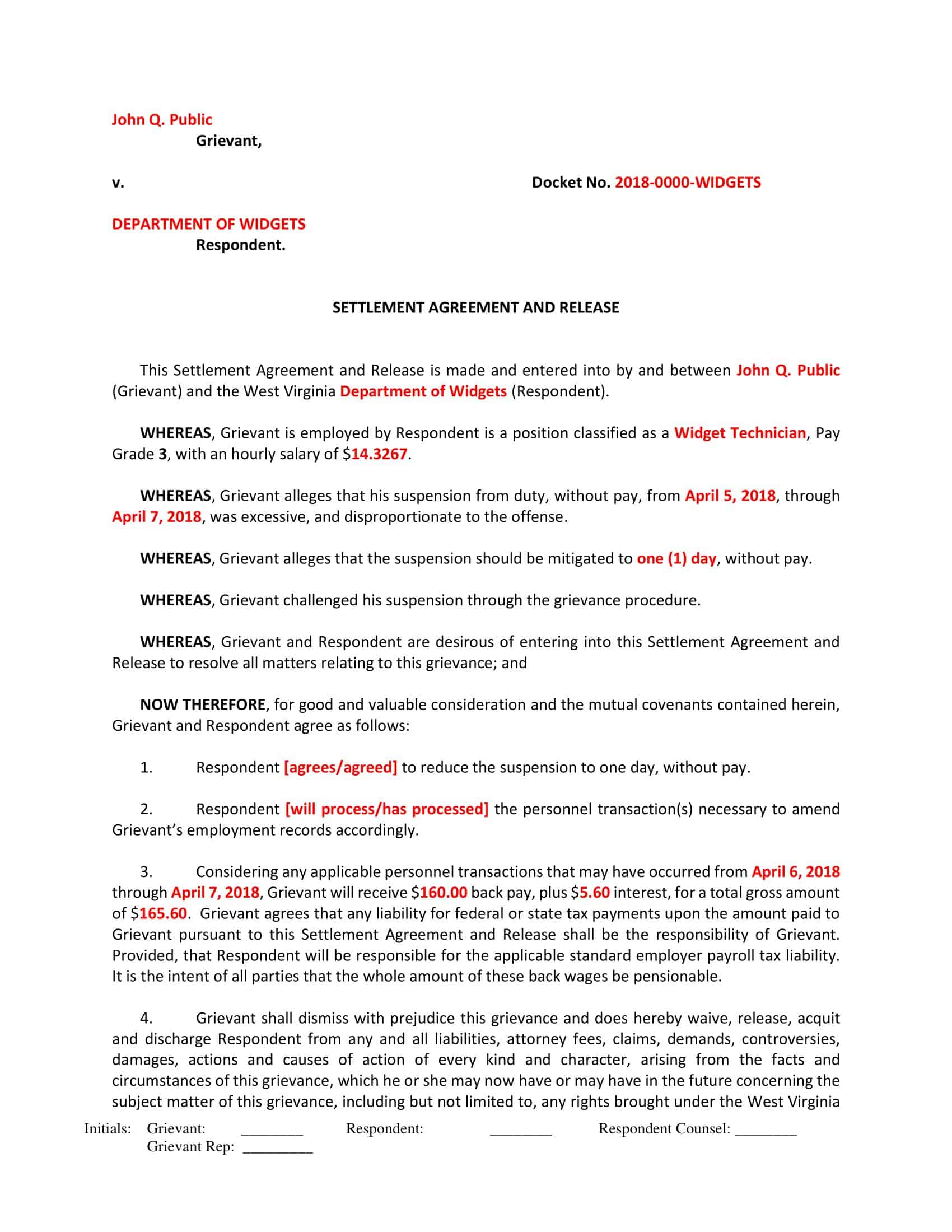


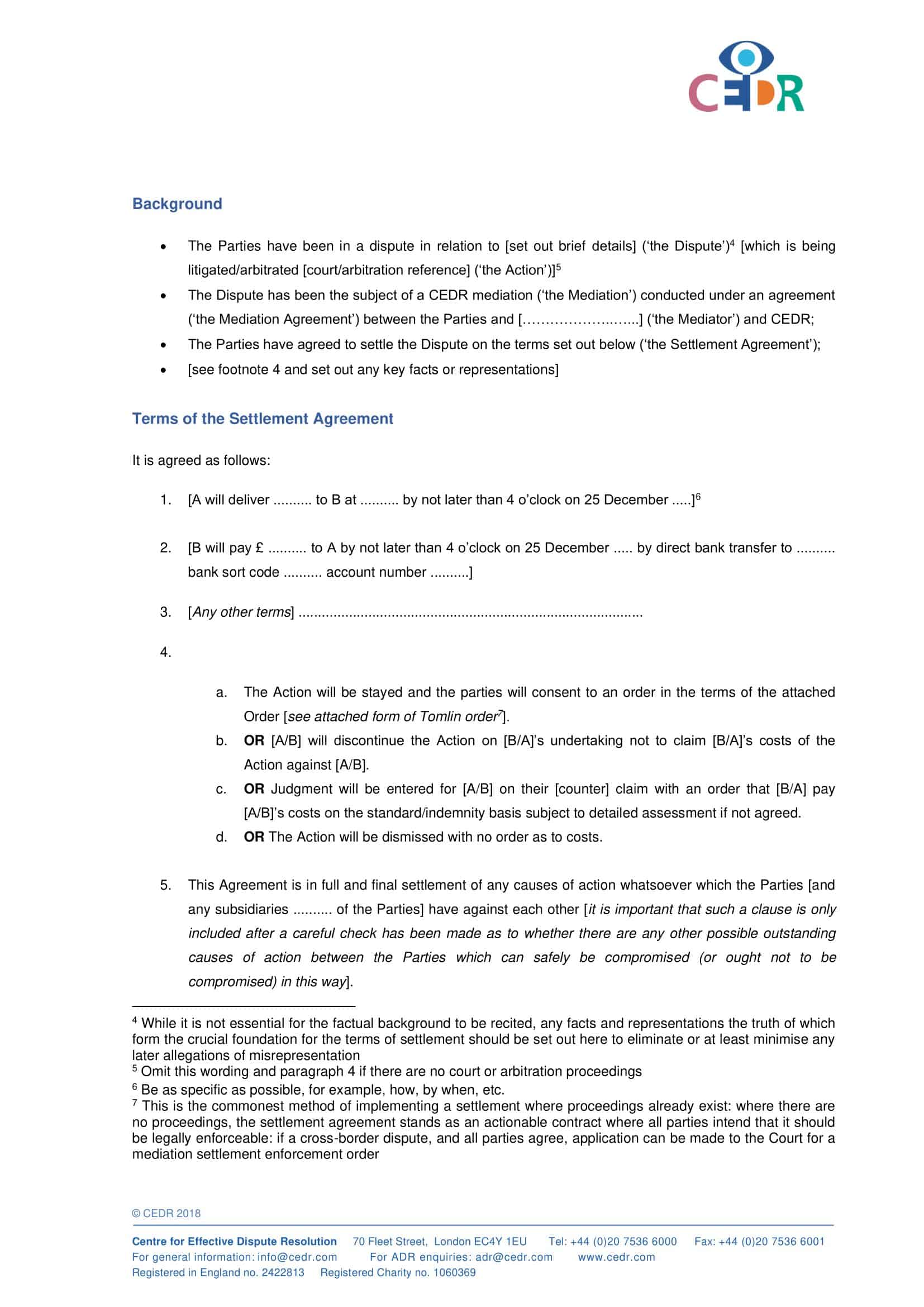




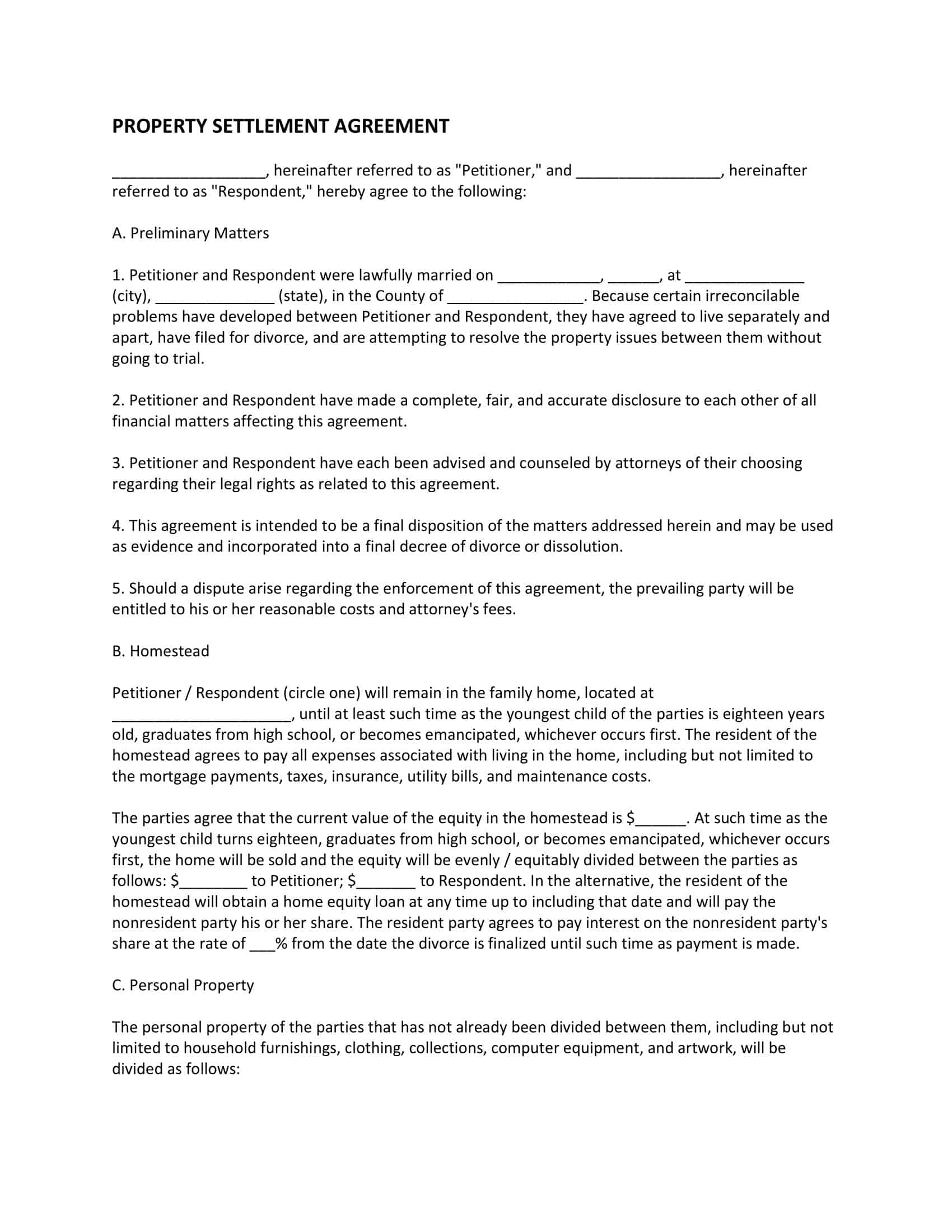


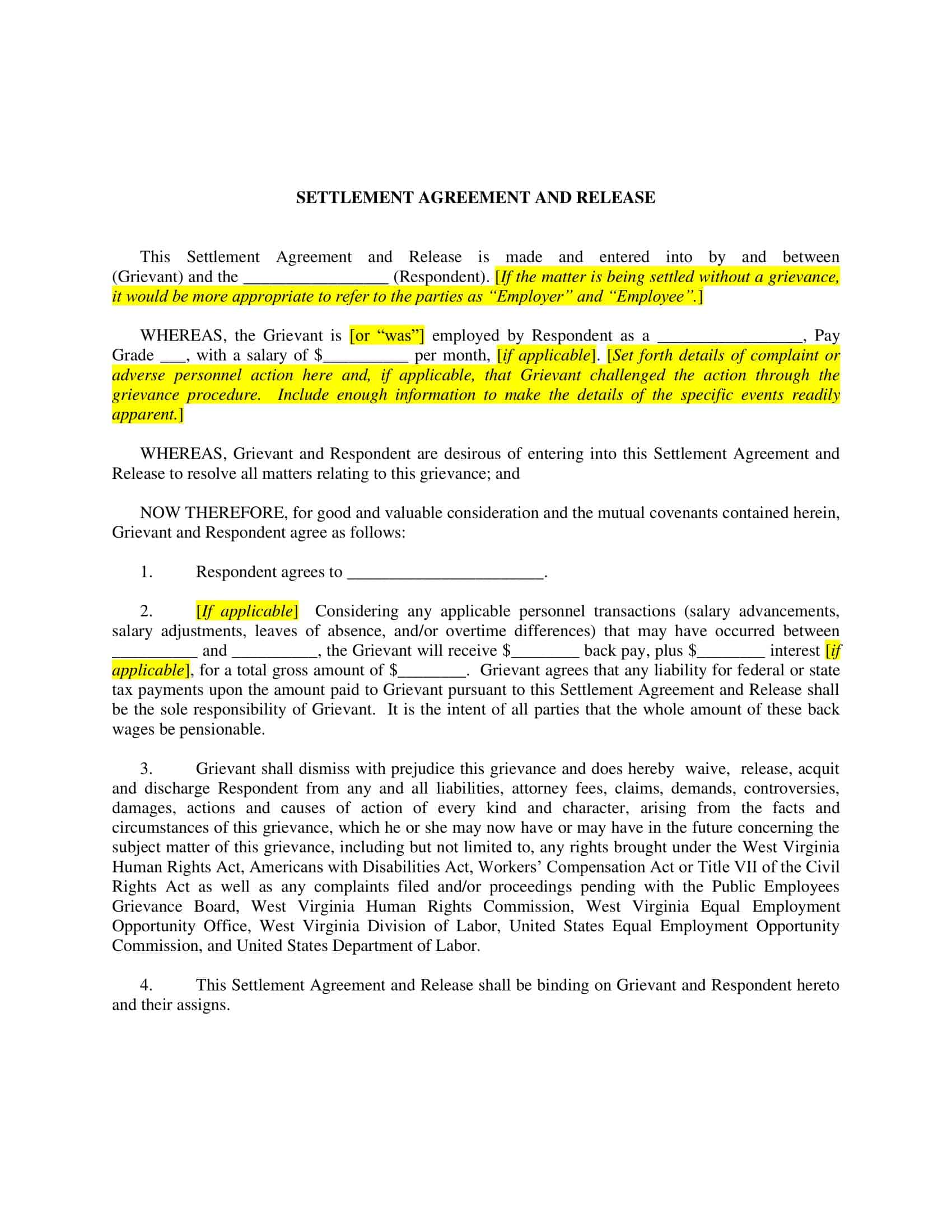


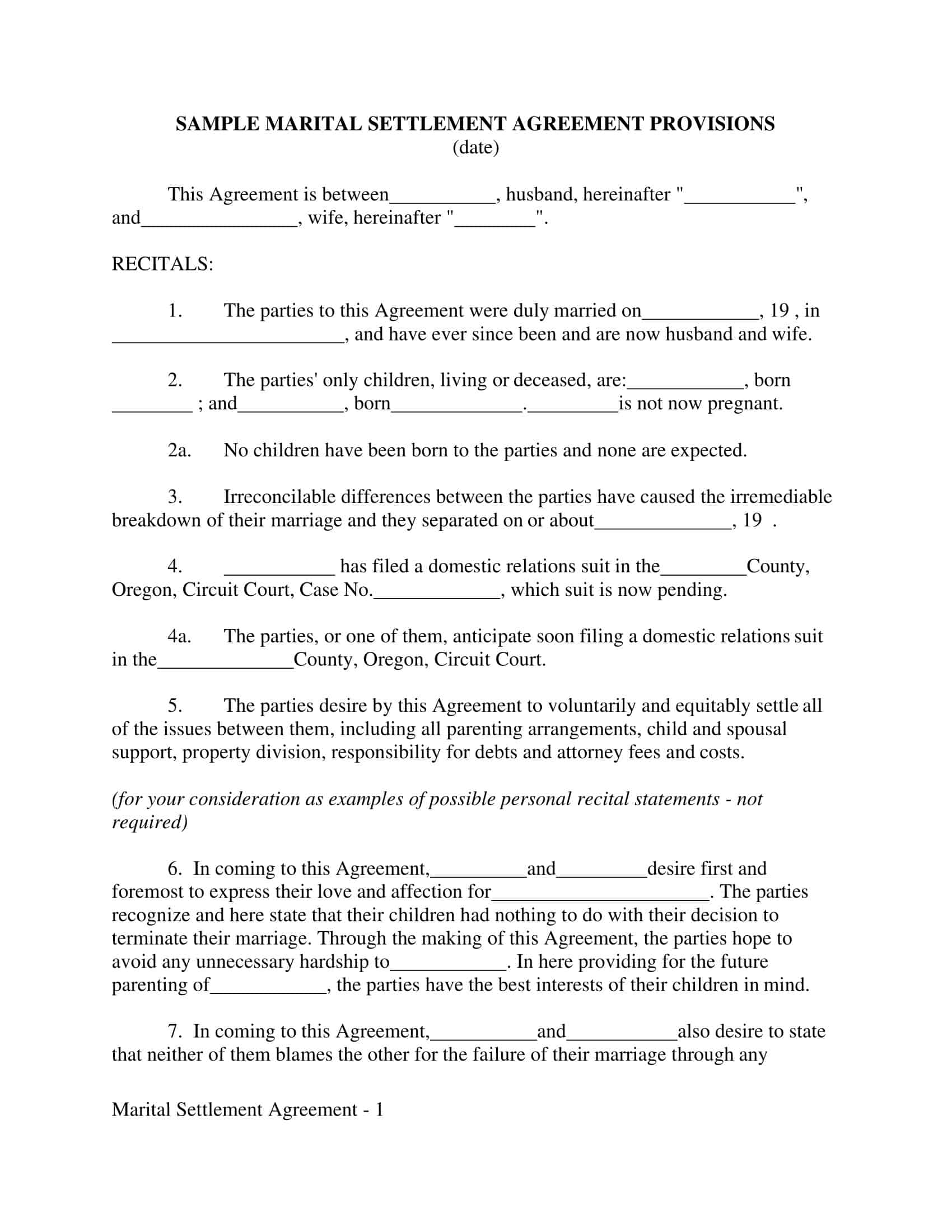





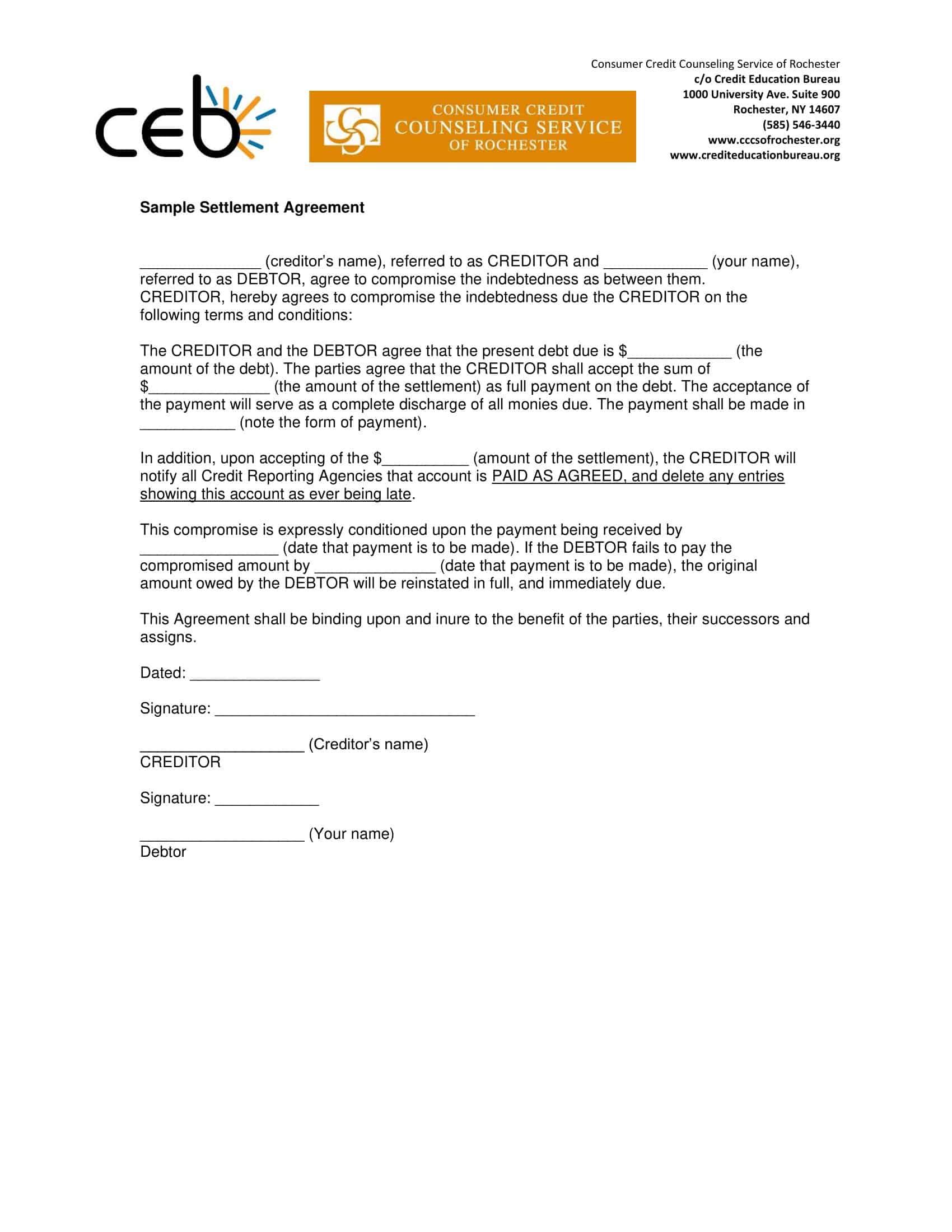



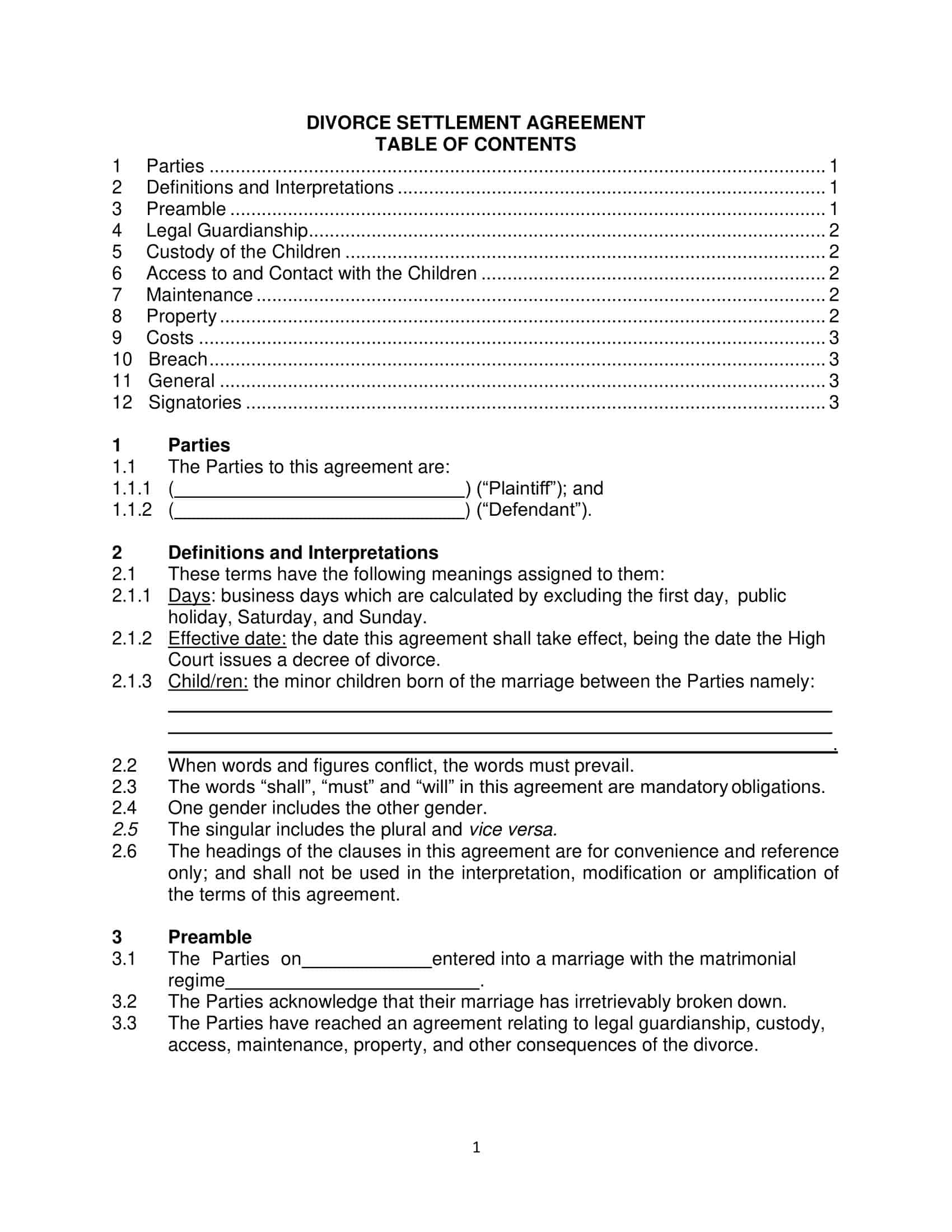
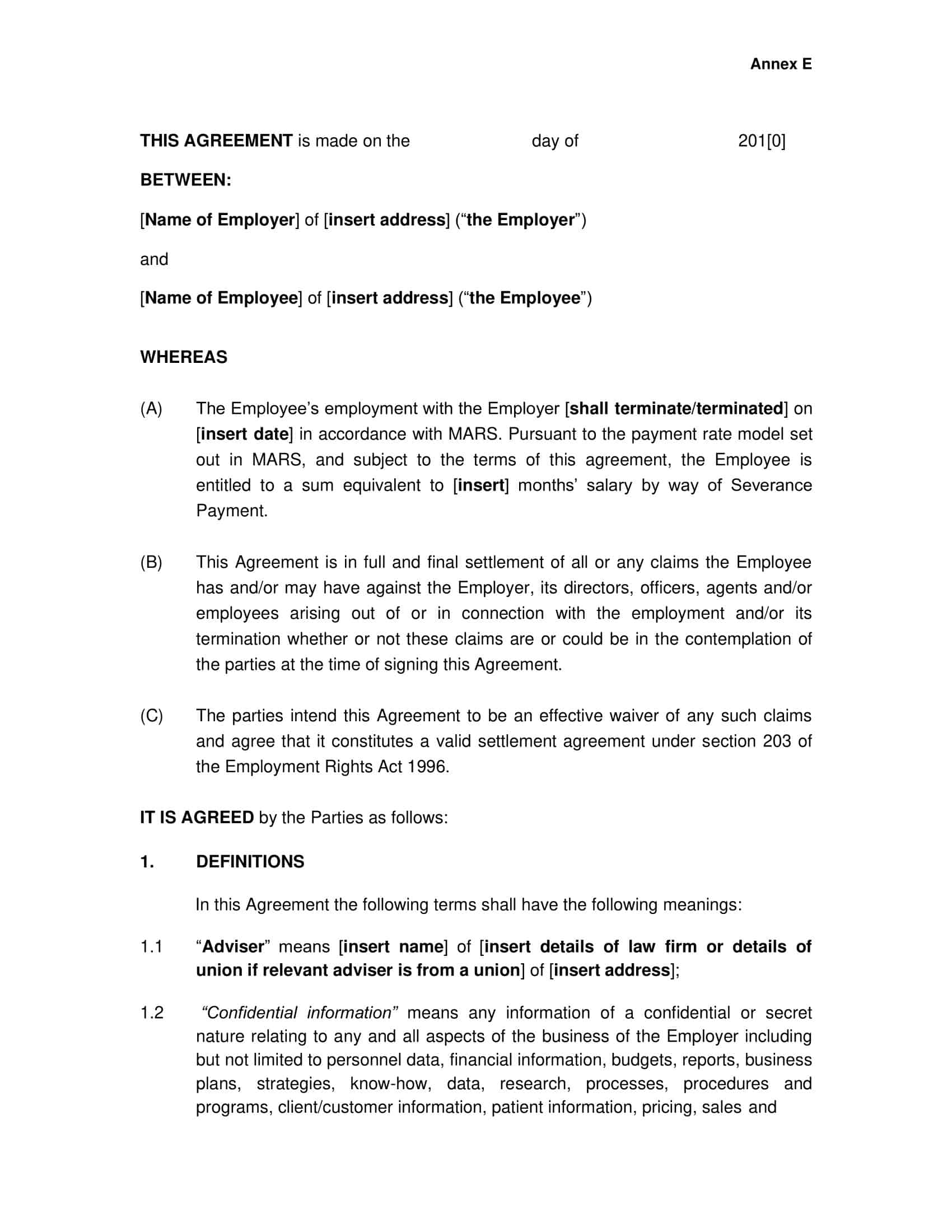
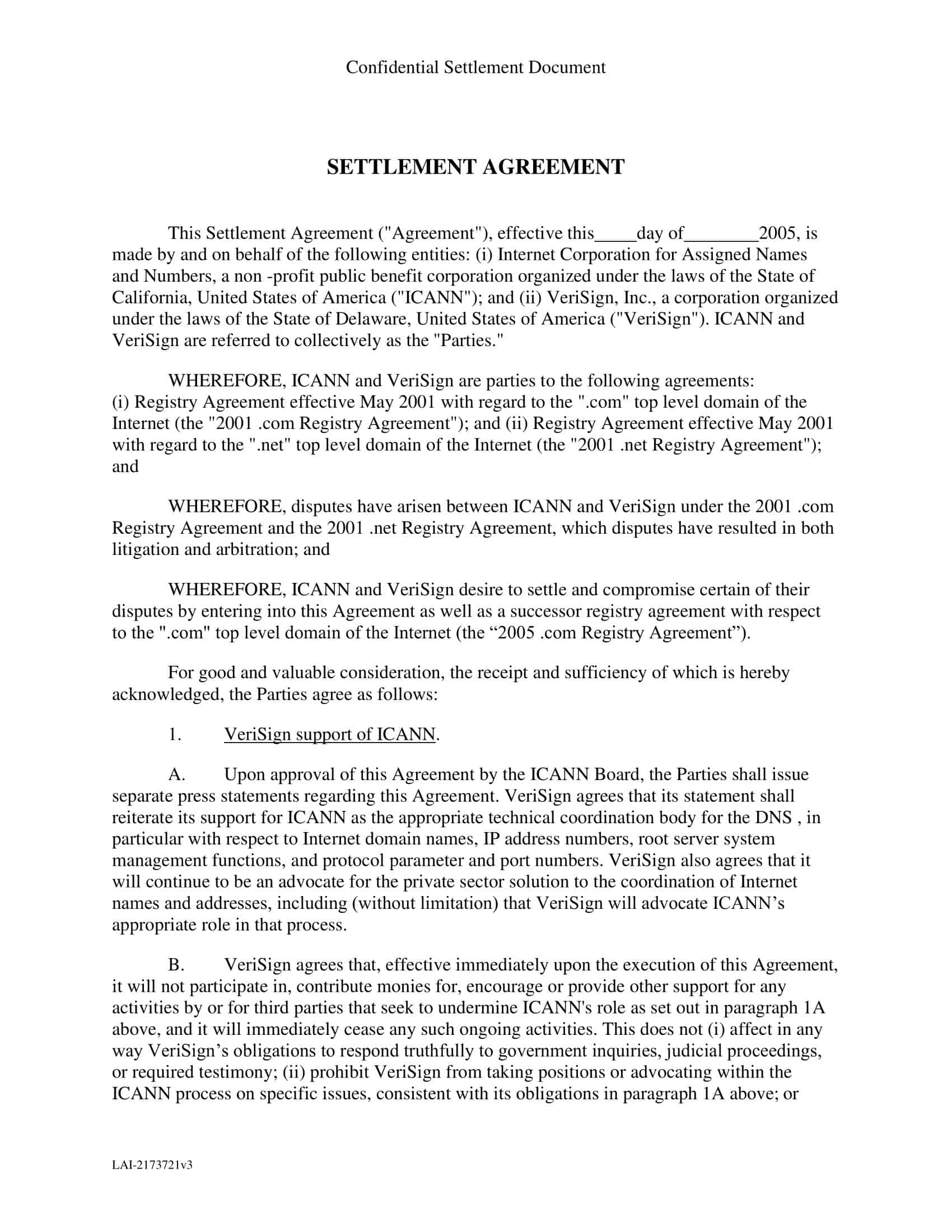

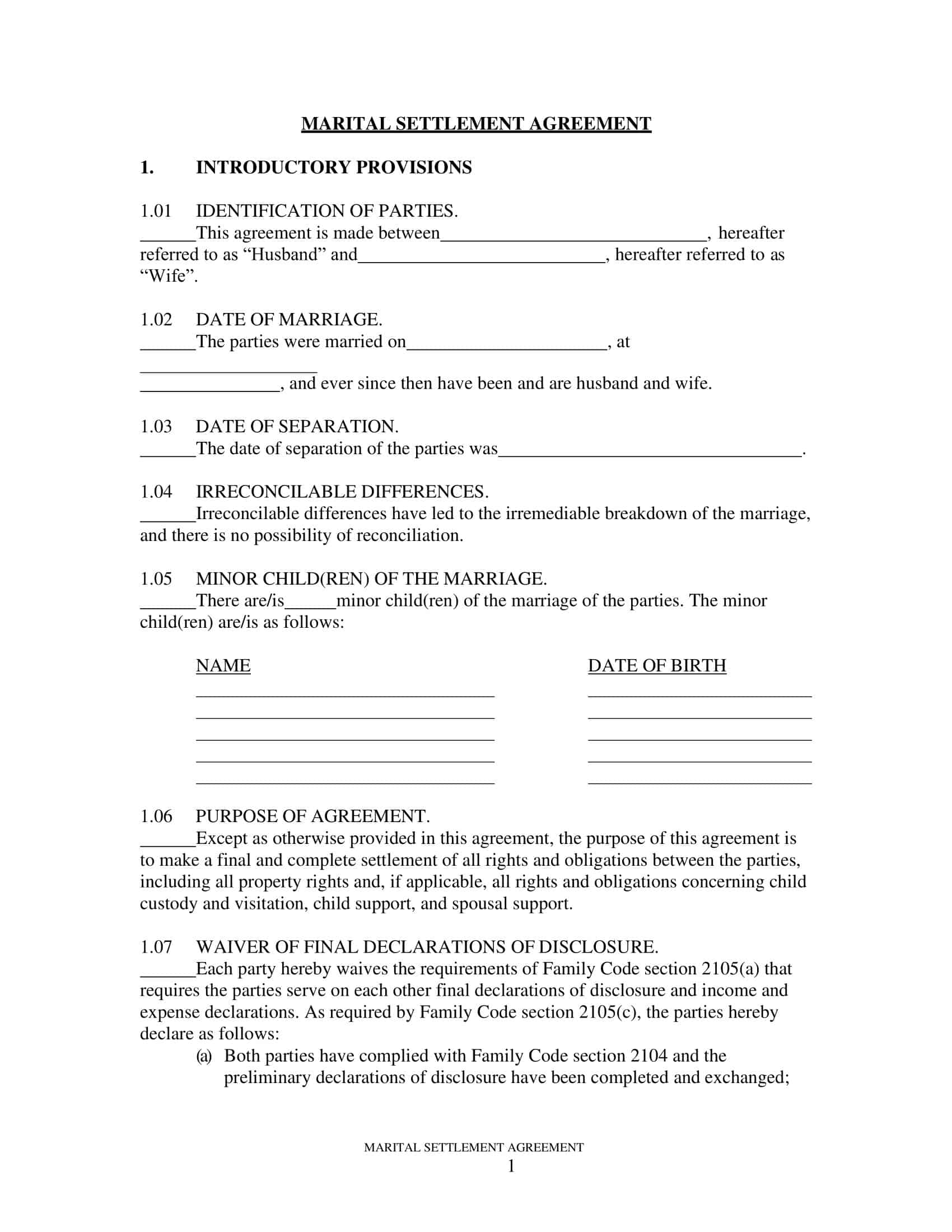

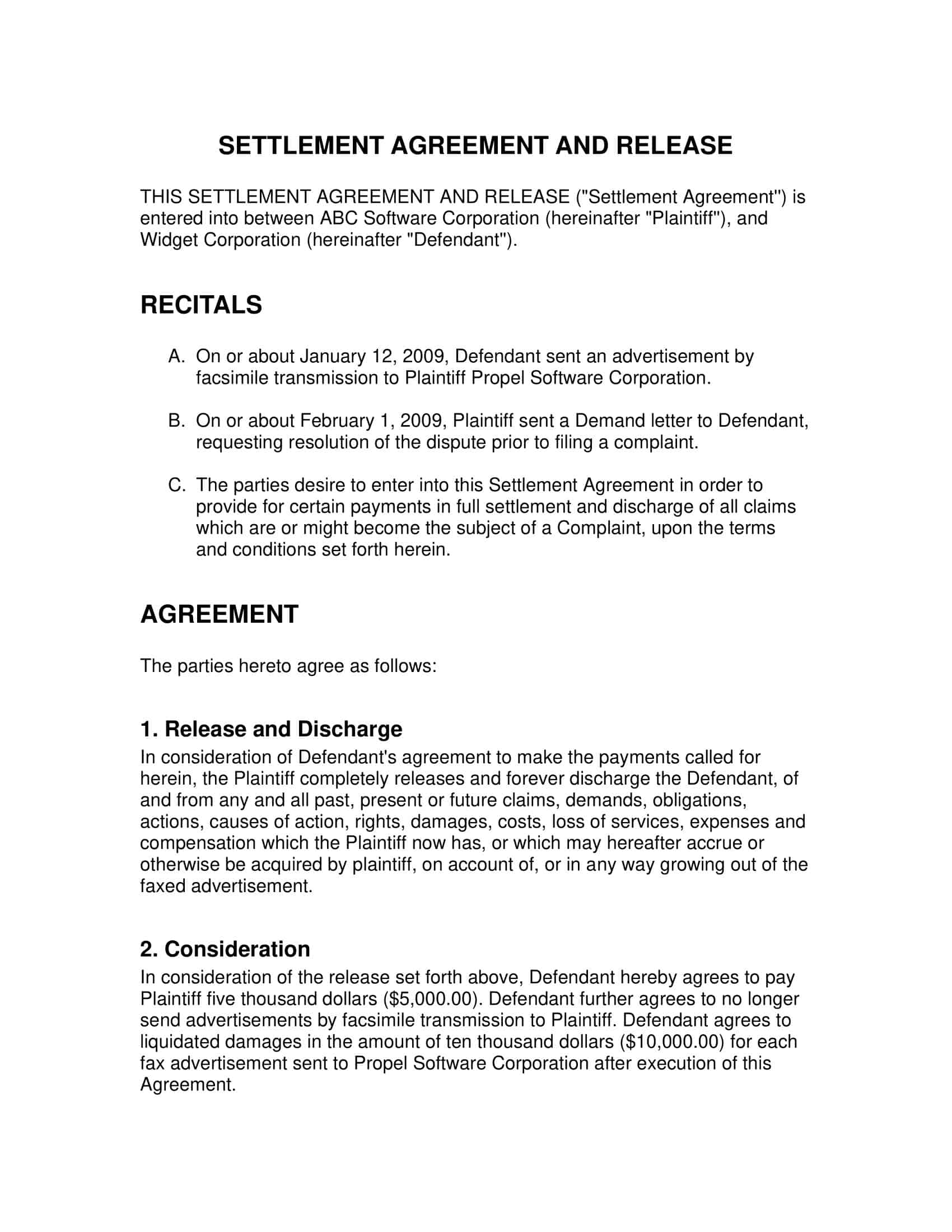


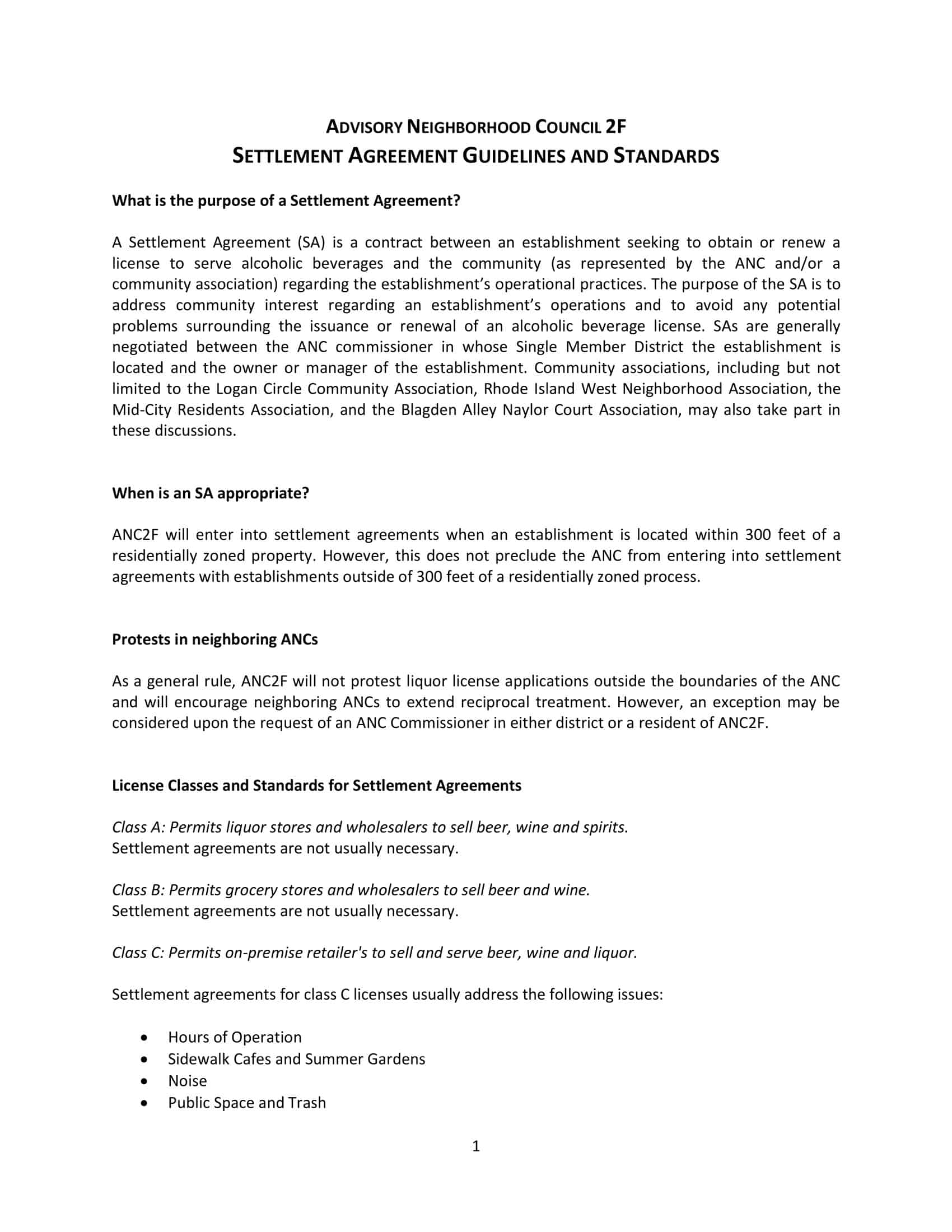




![Free Printable Roommate Agreement Templates [Word, PDF] 1 Roommate Agreement](https://www.typecalendar.com/wp-content/uploads/2023/06/Roommate-Agreement-150x150.jpg)
![Free Printable Payment Agreement Templates [PDF, Word] 2 Payment Agreement](https://www.typecalendar.com/wp-content/uploads/2023/05/Payment-Agreement-1-150x150.jpg)
![Free Printable Separation Agreement Templates [PDF, Word] 3 Separation Agreement](https://www.typecalendar.com/wp-content/uploads/2023/05/Separation-Agreement-1-150x150.jpg)
